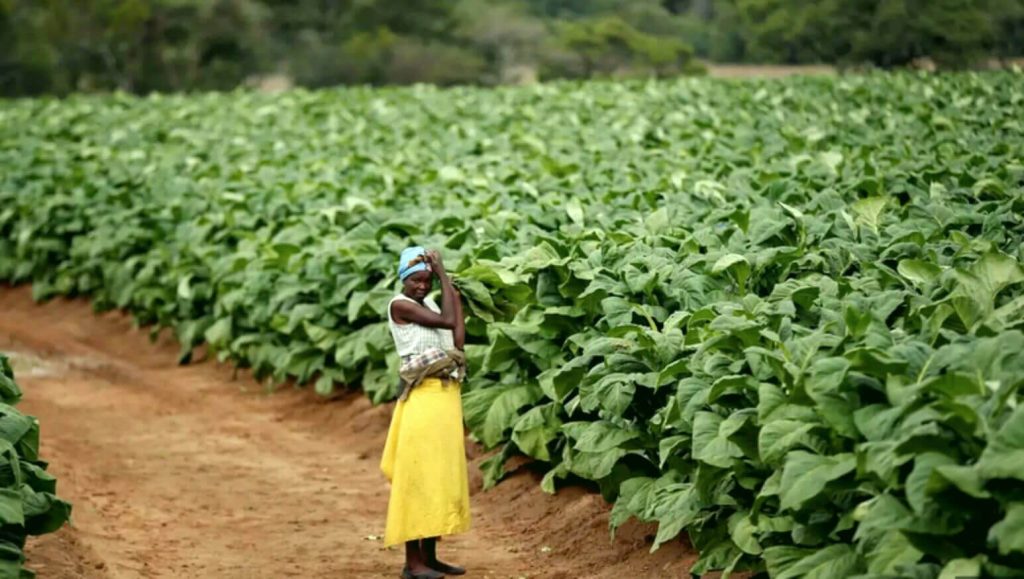
Let’s light a match and illuminate the lesser-known aspects of the tobacco industry in Africa, an industry that is an integral, yet often overlooked, element of the continent’s economic landscape. From fields to factories, markets to ports, the African tobacco industry is a vast and complex network, weaving a narrative that stretches from the most remote rural farmlands to the bustling urban trade centers.
Africa, a continent rich in history and culture, has an equally fascinating narrative when it comes to the tobacco industry. This burgeoning sector, often overshadowed by other industries, has carved its own niche in the economic framework of the continent.
History of the Tobacco Industry in Africa
The history of tobacco in Africa is a fascinating one. Tobacco seeds made their way to Africa via European merchants and explorers who initially brought the plant for trade. Over time, the cultivation of tobacco spread across the continent, with each region developing its unique variations of the crop. Today, the tobacco industry stands as a testament to this rich history, fostering economic development and providing livelihoods for millions.
Tobacco Farming
Tobacco farming is a cornerstone of many rural communities in Africa. Farmers cultivate several varieties of tobacco, each with its own set of cultivation requirements and market demands. The dedication of these farmers has ensured that Africa remains a significant player in the global tobacco industry.
Tobacco Processing
Once harvested, the tobacco leaves undergo a rigorous process of curing, aging, and packaging before reaching consumers. This sector employs thousands across the continent, contributing to the economic stability of these regions.
Domestic Companies
Several domestic companies have made a name for themselves in Africa’s tobacco industry. They navigate the unique challenges of the African market, contributing to local economies and ensuring the continuous growth of the industry.
International Players
In addition to domestic companies, several international players have staked their claim in the African tobacco market. They bring a global perspective and vast resources to the industry, helping shape its trajectory and navigate international trade landscapes.
Economic Impact of the Tobacco Industry
The tobacco industry has a significant impact on Africa’s economy. From the farmers cultivating the crops to the factories processing the leaves, every step adds value to the economy, contributing to the GDP and providing livelihoods to millions.
Domestic Regulations
Each country in Africa has its own set of regulations governing the production, sale, and consumption of tobacco. These regulations ensure that the industry operates ethically and sustainably, safeguarding the well-being of its citizens.
International Trade Agreements
As a participant in the global tobacco trade, Africa is bound by several international agreements that dictate the terms of tobacco production and export. These agreements aim to create a fair and balanced global tobacco trade.
Challenges Facing the African Tobacco Industry
Despite its economic impact, the African tobacco industry faces several challenges. These range from logistical issues to regulatory hurdles, each posing unique obstacles to the industry’s growth.
The Future of the African Tobacco Industry
With a rich history behind it and a vast potential ahead, the future of the African tobacco industry is promising. Innovative farming techniques, improved processing methods, and a strong regulatory framework will help shape the industry’s future, ensuring its continuous growth and contribution to Africa’s economy.
Conclusion
The tobacco industry in Africa is a tapestry of rich history, economic impact, and potential for growth. It serves as a beacon of resilience, demonstrating how a humble plant has shaped the continent’s economic landscape. As we look to the future, one thing is certain: the African tobacco industry will continue to be a significant player on the global stage.
“FAQs:”
-
Who are the major players in the African tobacco industry?
The major players include local producers such as Zimbabwe’s Tobacco Research Board and Tanzania’s Tanzania Cigarette Public Limited Company, as well as international companies like British American Tobacco and Imperial Tobacco.
-
What types of tobacco are grown in Africa?
Various types of tobacco are grown in Africa, including Virginia, Burley, and Oriental tobacco.
-
Where is tobacco mainly grown in Africa?
Tobacco is mainly grown in countries such as Zimbabwe, Malawi, and Tanzania.
-
Why is the tobacco industry significant in Africa?
The tobacco industry plays a critical role in Africa’s economy, providing employment opportunities and contributing to foreign exchange earnings.
-
How is tobacco processed in Africa?
Once harvested, tobacco leaves are usually cured in specially designed barns before they are sorted, packaged, and sent to factories for further processing.
-
Is tobacco farming lucrative in Africa?
Yes, tobacco farming can be lucrative in Africa due to the high demand for tobacco products both domestically and internationally.
-
Can Africa meet its tobacco demand domestically?
Yes, Africa is not only able to meet its domestic tobacco demand but also exports a significant portion of its tobacco production.
-
Does the African government regulate the tobacco industry?
Yes, the governments in Africa regulate the tobacco industry through various laws and policies.
-
Will the tobacco industry in Africa continue to grow?
Given the current trends, it’s likely that the tobacco industry in Africa will continue to grow in the foreseeable future.
- What is the future outlook for the African tobacco industry?
The future of the African tobacco industry looks promising, with potential for growth and development.
“Books:”
- “Golden Leaf, Barren Harvest: The Costs of Tobacco Farming” by P. L. P. Liu
- “African Agriculture: The Critical Choices” by Hamid Ait Amara and Bernard Founou-Tchuigoua